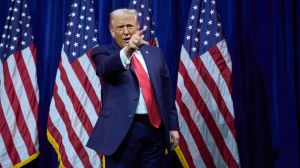Excellence and access
Quota discussions over, the Knowledge Commission needs to focus on quality in higher education

The six-two split in the Knowledge Commission gives holistic depth to the current debate on Mandal II. In Bangalore this week, a majority of the members of the commission came out in sharp misgiving about the Centre8217;s proposal to extend the benefits of reservation in central educational institutions to OBCs. The commission was set up recently by the prime minister to advise him directly on educational reform and challenges in meeting its knowledge potential. The first measure of its institutional relevance will be taken now. The debate on reserving seats for OBCs is much larger than just a question of quotas. It is a pointer, whether Arjun Singh intended it to be so or not, to India8217;s failure in making education socially inclusive. To its credit, the Knowledge Commission has fleshed out this fundamental agenda from the bare bones of a regrettably narrow and obviously political agenda set in motion by the human resource development minister.
It is in this context that the minority view in the commission gains significance. Even as its vice-chairman, P.M. Bhargava, affirmed commitment to quotas, he too emphasised the need to broadbase access. This, he saw as a necessary condition in extending reservations for OBCs in higher education and would require the government to set up 400,000 high schools and desist from cutting back on the number of candidates chosen on the basis of 8220;merit8221;. Even in agreement with the extension of quotas, therefore, members are alert to both nuance and the bigger picture.
In the transparency of its discussions, the Knowledge Commission has been wholesomely responsive. Given its remit, the onus would entirely be on the Central government 8212; and more specifically, the prime minister, to whose office the commission directly reports 8212; to take forward the debate. But commissions too are gauged not by the wise words they record, but by the effect of their deliberations. A good example of this is the Kelkar task force on fiscal responsibility in budget management. We therefore await both imaginative and pragmatic suggestions by the Knowledge Commission on giving higher education in the country an excellence edge and in making it more accessible.
- 01
- 02
- 03
- 04
- 05































